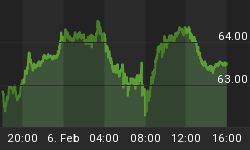Backing Off Stimulus Is Hard To Do

As the Federal Reserve moves closer to tapering their monetary stimulus program, you can bet they are keeping an eye on developments in China. From Wednesday's Wall Street Journal:
Signs of a further contraction in China's manufacturing sector added to the bad news on the world's second-largest economy, testing policy makers' determination to ride out a slowdown without stimulus measures.
China has been trying to break their addiction to monetary and fiscal stimulus. It has been a difficult process thus far. The world's No. 2 economy has slowed in nine of the past ten quarters. Investors have taken notice with the ChinaETF (FXI) significantly lagging the S&P 500 (SPY) this year.

Tolerance Has Limits
Why do central bankers print money and why do governments stimulate? There are many reasons, including the fear of a longer than expected economic lull or recession. From the Wall Street Journal:
"The tolerance of slower growth is not unlimited," said J.P. Morgan's top China economist, Zhu Haibin in a research report on Wednesday. Mr. Zhu expects the slowdown to be met with a series of targeted micro-measures to keep growth on track. That could include railway construction, new IT and telecoms infrastructure, funding for green technology, and tax breaks for the service sector and small and medium-size enterprises.
Don't Really Need Anything
The aftereffects from the 2003-2007 credit bubble are still haunting global policy makers and businesses. The segment of the global population that consumed during the bubble years tended to over consume. Easy access to credit allowed many to buy vacation homes and weekend cars. Vacation homes need to be filled with "stuff", which fueled booms in consumer products.

The previous buying binge has left many in the "I really don't need anything" camp. It is difficult for policy makers to create lasting demand for anything, but it is even more challenging in the wake of the biggest credit bubble in history.
Investment Implications
China's recent economic slowdown tells us to be open to some choppy economic and market waters once the Fed begins to taper. As noted in this video segment, the big picture for stock investing in the United States is still favorable. As long as risk-on assets (SPY) are performing well relative to risk-off assets (TLT) and credit spreads remain tame, we will try to give our U.S.-related ETFs some room to continue running. Our core positions are in the broad market (VTI), financials (XLF), and technology (QQQ).















